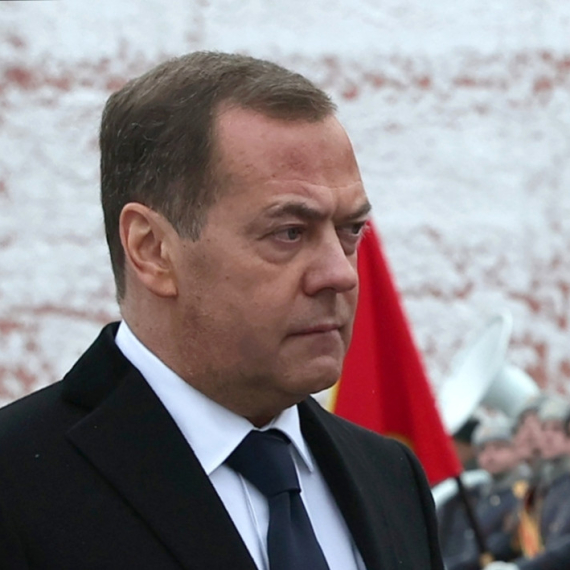"Govt. to adopt 2009 budget next week"
National Investment Plan Minister Verica Kalanović said today that the government would adopt the draft budget for 2009 next week.
Thursday, 27.11.2008.
12:27

National Investment Plan Minister Verica Kalanovic said today that the government would adopt the draft budget for 2009 next week. "Going by what I've heard from the Finance Ministry, the budget is being finalized, and we are due to adopt it at the next cabinet meeting and submit it to parliament," said Kalanovic. "Govt. to adopt 2009 budget next week" Earlier, Health Minister Tomica Milosavljevic said the government was working on the draft budget for 2009, though it would not be discussed at today’s cabinet meeting. Milosavljevic said that the draft budget could be adopted at a separate session in the coming days. As announced last week by Prime Minister Mirko Cvetkovic, the budget is expected to envision revenue of around EUR 7.8bn and spending of around EUR 8.4bn, with a deficit of up to 1.5 percent GDP. Under the Law on the Budget System, the government is obliged to submit the draft budget for the following year by November 1 of the previous year, with parliament due to adopt it by December 15. Now that legal time frames have been exceeded, speculation is growing that temporary financing measures may have to be applied. Ekonomist magazine editor Milan Culibrk says, however, that it is still too early to think about temporary financing, as the current budget applies until the last day of the year. If temporary financing is nevertheless called for, according to Culibrk, there are certain advantages, however. “The general public won’t suffer in the event of temporary financing, and from the point of view of macro-economic stability, I think it might even be the best solution for Serbia,“ he said. “Temporary financing involves the state, on a monthly basis in 2009 until the budget is adopted, spending one-twelfth of the money that was spent this year,“ Culibrk explained. “Given that the 2009 budget will certainly be considerably bigger than for this year, the state would, through a temporary financing regime, be forced into much bigger savings measures than envisaged by the budget adoption,“ he said. "The downside of temporary financing is, first and foremost, a reduction in the government’s investment activities, though citizens are unlikely to feel any of the negative side-effects should this happen," Culibrk surmised.
"Govt. to adopt 2009 budget next week"
Earlier, Health Minister Tomica Milosavljević said the government was working on the draft budget for 2009, though it would not be discussed at today’s cabinet meeting.Milosavljević said that the draft budget could be adopted at a separate session in the coming days.
As announced last week by Prime Minister Mirko Cvetković, the budget is expected to envision revenue of around EUR 7.8bn and spending of around EUR 8.4bn, with a deficit of up to 1.5 percent GDP.
Under the Law on the Budget System, the government is obliged to submit the draft budget for the following year by November 1 of the previous year, with parliament due to adopt it by December 15.
Now that legal time frames have been exceeded, speculation is growing that temporary financing measures may have to be applied.
Ekonomist magazine editor Milan Ćulibrk says, however, that it is still too early to think about temporary financing, as the current budget applies until the last day of the year.
If temporary financing is nevertheless called for, according to Ćulibrk, there are certain advantages, however.
“The general public won’t suffer in the event of temporary financing, and from the point of view of macro-economic stability, I think it might even be the best solution for Serbia,“ he said.
“Temporary financing involves the state, on a monthly basis in 2009 until the budget is adopted, spending one-twelfth of the money that was spent this year,“ Ćulibrk explained.
“Given that the 2009 budget will certainly be considerably bigger than for this year, the state would, through a temporary financing regime, be forced into much bigger savings measures than envisaged by the budget adoption,“ he said.
"The downside of temporary financing is, first and foremost, a reduction in the government’s investment activities, though citizens are unlikely to feel any of the negative side-effects should this happen," Ćulibrk surmised.































Komentari 0